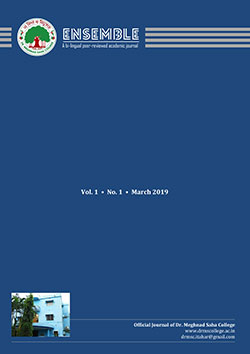CLASSICAL MUSIC CONFERENCE CULTURE OF NORTH INDIA WITH SPECIAL REFERENCE TO KOLKATA
Abstract:
The music of any country has its own historical and cultural background. Social changes, political changes, and patronage changes may influence the development of music. This may affect the practices in the field of music. This present study does the scrutiny of the broad sociocultural settings in context to the music conferences of India. The study then mainly probes and explores the prime music conferences of India, with special reference to Kolkata, from a century ago till the present time. It shows the role of music conferences in disseminating interest and appreciation of Classical music among the common public. The cultural climate shaped under the domination of British rule included the shift of patronage from aristocratic courts to wealthy persons and a mercantile class of urban Kolkata. This allowed the musicians to earn a livelihood, and at the same time, provided them with a new range of opportunities in the form of an increasing number of music conferences. This happened at a time when a new class of Western-educated elites was formed in Kolkata. Analyzing the present scenario, made it clear that Kolkata still leads in the number of music festivals / Classical music conferences. The present study also points out the contemporary complexities that conference organizers face, and to conclude, incorporates suggestions to sustain the culture of the conference.
Keywords: patronage, british, stage performances, north indian, musical genre, hindustani music, shastriya sangeet, british, post independence
https://doi.org/10.37948/ensemble-2020-0201-a016
Views: 2290



